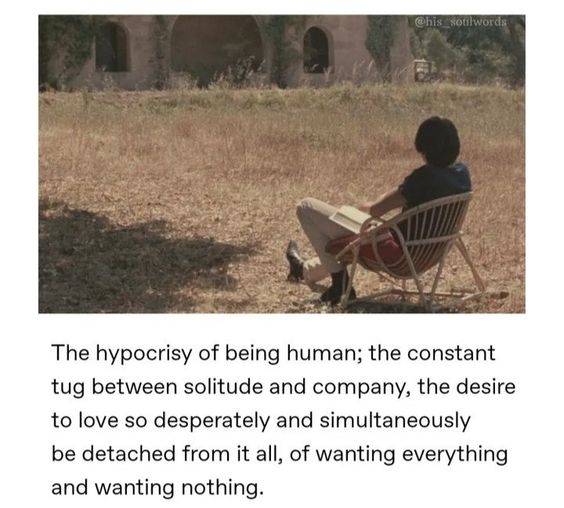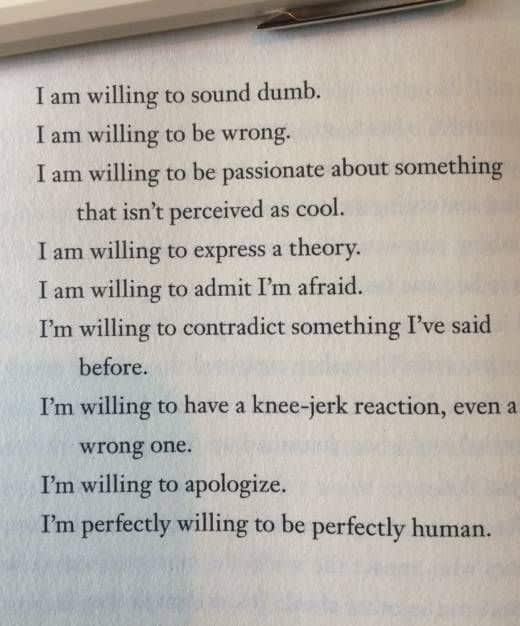“All of the truly important battles are waged within the self. It is as if we are all tempted to view ourselves as men on horseback. The horse represents a lusty animal-way of living, untrammeled by reason, unguided by purpose. The rider represents independent, impartial thought, a sort of pure cold intelligence. too often the pilgrim lives as though his goal is to become the horseman who would break the horse’s spirit so that he can control him, so that he may ride safely and comfortably wherever he wishes to go. If he does not wish to struggle for discipline, it is because he believes that his only options will be either to live the lusty, undirected life of the riderless horse, or to tread the detached, unadventuresome way of the horseless rider. If neither of these, then he must be the rider struggling to gain control of his rebellious mount. He does not see that there will be no struggle, once he recognizes himself as a centaur.”
Sheldon B. Kopp, If You Meet Buddha On The Road, Kill Him! (Page 7)
“Though the patient enters therapy insisting that he wants to change, more often than not, what he really wants is to remain the same and to get the therapist to make him feel better. His goal is to become a more effective neurotic, so that he may have what he wants without risking getting into anything new. He prefers the security of known misery to the misery of unfamiliar insecurity.”
Sheldon B. Kopp, If You Meet Buddha On The Road, Kill Him! (Page 4)
“This being human is a guest house. Every morning is a new arrival. A joy, a depression, a meanness, some momentary awareness comes as an unexpected visitor… Welcome and entertain them all. Treat each guest honorably. The dark though, the shame, the malice, meet them at the door laughing, and invite them in. Be grateful for whoever comes, because each has been sent as a guide from beyond.”
Rumi, via The Body Keeps The Score (Page 279)
“Whereas all the other animals have their heads low, eyes fixed upon the ground, the god desired to give to man a sublime face, a face that could raise its eyes to the heavens above, contemplating the very stars in the sky.”
Ovid, via The Daily Laws (Page 421)
“To have a mountain in front of you does not mean you are fundamentally broken in some way. Everything in nature is imperfect, and it is because of that imperfection that growth is possible. If everything existed in uniformity, the gravity that created the stars and planets and everything that we know would not exist. Without breaks, faults, and gaps, nothing could grow and nothing would become. The fact that you are imperfect is not a sign that you have failed; it is a sign that you are human, and more importantly, it is a sign that you still have more potential within you.”
Brianna Wiest, The Mountain Is You (Page 6)
“People tend to hide their problems and to put their best face forward. We only see and hear of their triumphs, their new relationships, their brilliant ideas that will land them a gold mine. If we move closer—if we saw the quarrels that go on behind closed doors or the horrible boss that goes with that new job—we would have less reason to feel envy. Nothing is ever so perfect as it seems, and often we would see that we are mistaken if we only looked closely enough.”
Robert Greene, The Daily Laws (Page 377)
“…The more civilized and moral we outwardly become, the more potentially dangerous is the Shadow, which we so fiercely deny. The solution is not more repression and correctness. We can never alter human nature through enforced niceness. The pitchfork doesn’t work. Nor is the solution to seek release for our Shadow in the group, which is volatile and dangerous. Instead the answer is to see our Shadow in action and become more self-aware. It is hard to project onto others our own secret impulses or to overidealize some cause, once we are made aware of the mechanism operating within us.”
Robert Greene, The Daily Laws (Page 376)
“Almost every effort of the human mind is directed, not toward lightening the work of the laborer, but toward making more pleasant the idleness of the leisured.”
Leo Tolstoy, A Calendar of Wisdom (Page 173)
13 Rousing Delia Owens Quotes from Where The Crawdads Sing on Abandonment, Love, and Self-Reliance
Excerpt: Featuring some powerful themes on abandonment, love, and self-reliance—these quotes from Where The Crawdads Sing will strike a cord.
Read More »13 Rousing Delia Owens Quotes from Where The Crawdads Sing on Abandonment, Love, and Self-Reliance
“Nature is merciful and does not try her children, man or beast, beyond their compass. It is only when the cruelty of man intervenes that hellish torments appear. For the rest—live dangerously; take things as they come; dread naught, all will be well.”
Winston Churchill, via The Daily Stoic (Page 280)
“The epitome of the human realm is to be stuck in a huge traffic jam of discursive thought.”
Chögyam Trungpa, The Myth Of Freedom, via Sunbeams (Page 121)
“She knew the years of isolation had altered her behavior until she was different from others, but it wasn’t her fault she’d been alone. Most of what she knew, she’d learned from the wild. Nature had nurtured, tutored, and protected her when no one else would. If consequences resulted from her behaving differently, then they too were functions of life’s fundamental core.”
Delia Owens, Where The Crawdads Sing (Page 363)
“The question of what it means to be human is now inextricable from the question of who we are to each other.”
Krista Tippett, Becoming Wise (Page 2)
Alicia Keys Quote on Perfection and Being Okay With Our Imperfect Reality
“I tend to want every person to embody the best of humanity—for all of us to be givers and builders and dreamers. That’s not reality. At different seasons in life, we each fall into various categories. Even still, every one of us also has a strong behavioral tendency, and that is okay. I’m coming to terms with the fact that so-called perfection—this idea that everything should be beautiful and in order at all times—is just not going to happen.”
Alicia Keys, More Myself (Page 254)
Beyond the Quote (Day 386)
And as she says in her song, Authors of Forever, “Wherever you are, it’s alright / Whoever you are, it’s alright.” It’s okay to be who you are, where you are on your journey. None of us are perfect and we all lead imperfect lives. Expect perfection from someone—anyone—and you’ll always end up disappointed. Expect imperfection and you’ll at least be able to meet people where they are. Disappointment leads to emotional distancing and separation. Understanding leads to emotional advancing and connection.
Read More »Alicia Keys Quote on Perfection and Being Okay With Our Imperfect Reality“What can be truly loved about a person is inseparable from their limitations.” ~ Jordan Peterson, via 12 Rules for Life (Page 341)
“To meet our basic goodness, we meditate. Through peaceful abiding, we learn to rest fearlessly in our natural state. We see what an enlightened being sees: basic goodness is the ground of being, the nature of everything; it’s an indestructible continuum, a diamond hologram with infinite facets. Through contemplation we discover that, like the reflection of a jewel in the sunlight, it is empty. In continuing to contemplate, we see that this emptiness is vibrant and dynamic—a playful display of thoughts, emotions, and perceptions. This is luminosity.” ~ Sakyong Mipham, Turning the Mind Into An Ally (Page 198)
“From a Buddhist point of view, human beings aren’t intrinsically aggressive; we are inherently peaceful. This is sometimes hard to believe. When we’re angry or upset, our untrained mind becomes belligerent and we routinely strike out at others. We imagine that reacting aggressively to the object of our emotion will resolve our pain. Throughout history we have used this approach over and over again. Striking out when we’re in pain is clearly one way we perpetuate misery. With a trained mind, a stable mind, a mind with a larger motivation than its own comfort, we find another way to work with difficulties of daily life. When we’re in a difficult situation, we maintain our seat. Instead of perpetuating misery by acting out aggression, we learn to use the rough spots to spark the courage to proceed on our journey. Eventually we may actually be able to turn the mind of anger into the energy of love and compassion.” ~ Sakyong Mipham, Turning the Mind Into An Ally (Page 26)


